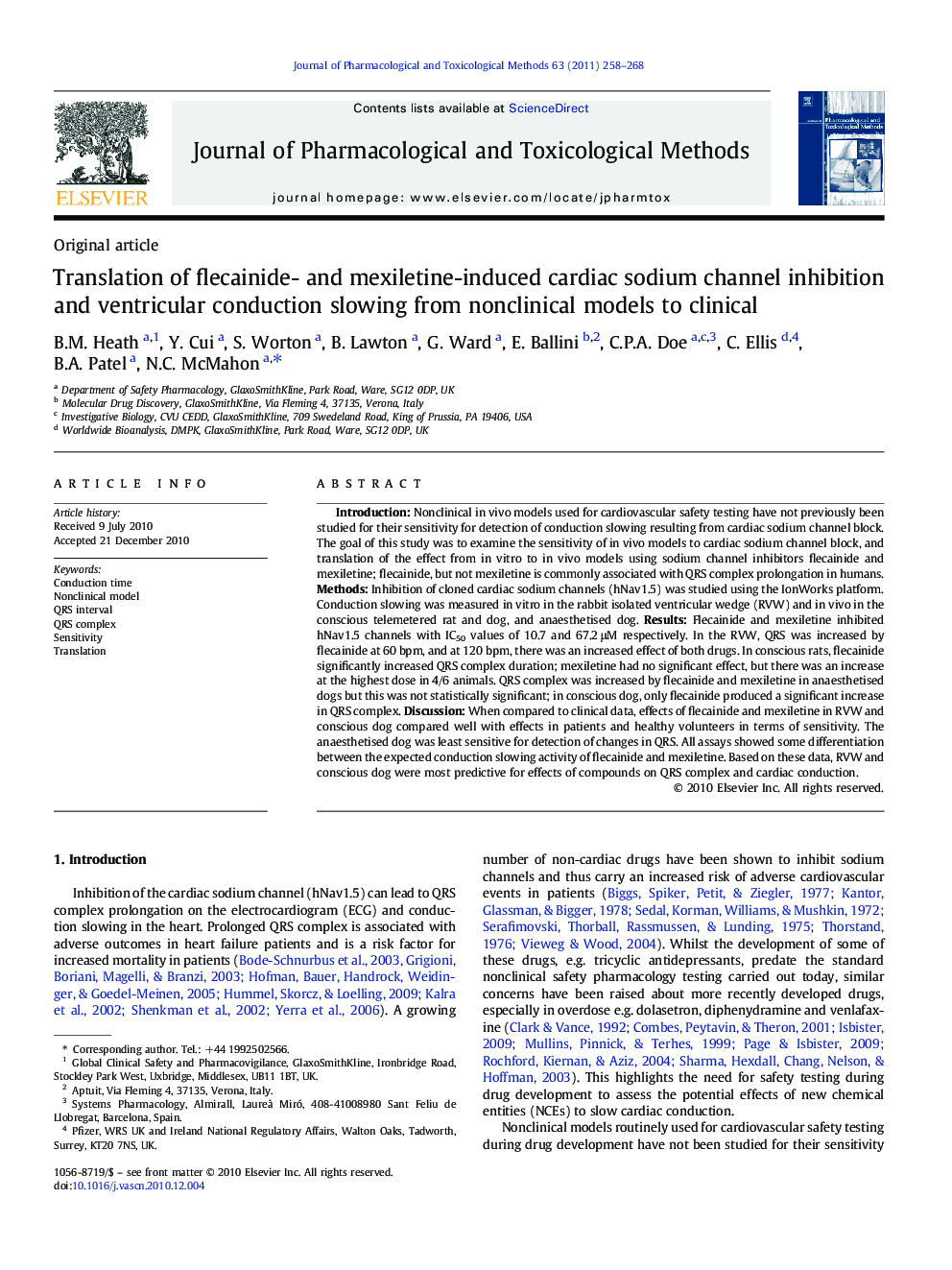| کد مقاله | کد نشریه | سال انتشار | مقاله انگلیسی | نسخه تمام متن |
|---|---|---|---|---|
| 2549383 | 1124513 | 2011 | 11 صفحه PDF | دانلود رایگان |

IntroductionNonclinical in vivo models used for cardiovascular safety testing have not previously been studied for their sensitivity for detection of conduction slowing resulting from cardiac sodium channel block. The goal of this study was to examine the sensitivity of in vivo models to cardiac sodium channel block, and translation of the effect from in vitro to in vivo models using sodium channel inhibitors flecainide and mexiletine; flecainide, but not mexiletine is commonly associated with QRS complex prolongation in humans.MethodsInhibition of cloned cardiac sodium channels (hNav1.5) was studied using the IonWorks platform. Conduction slowing was measured in vitro in the rabbit isolated ventricular wedge (RVW) and in vivo in the conscious telemetered rat and dog, and anaesthetised dog.ResultsFlecainide and mexiletine inhibited hNav1.5 channels with IC50 values of 10.7 and 67.2 μM respectively. In the RVW, QRS was increased by flecainide at 60 bpm, and at 120 bpm, there was an increased effect of both drugs. In conscious rats, flecainide significantly increased QRS complex duration; mexiletine had no significant effect, but there was an increase at the highest dose in 4/6 animals. QRS complex was increased by flecainide and mexiletine in anaesthetised dogs but this was not statistically significant; in conscious dog, only flecainide produced a significant increase in QRS complex.DiscussionWhen compared to clinical data, effects of flecainide and mexiletine in RVW and conscious dog compared well with effects in patients and healthy volunteers in terms of sensitivity. The anaesthetised dog was least sensitive for detection of changes in QRS. All assays showed some differentiation between the expected conduction slowing activity of flecainide and mexiletine. Based on these data, RVW and conscious dog were most predictive for effects of compounds on QRS complex and cardiac conduction.
Journal: Journal of Pharmacological and Toxicological Methods - Volume 63, Issue 3, May–June 2011, Pages 258–268